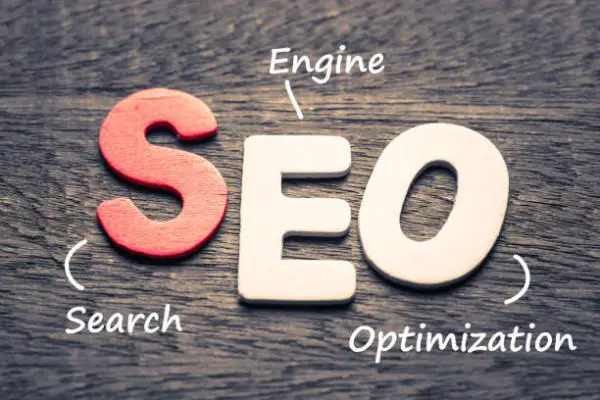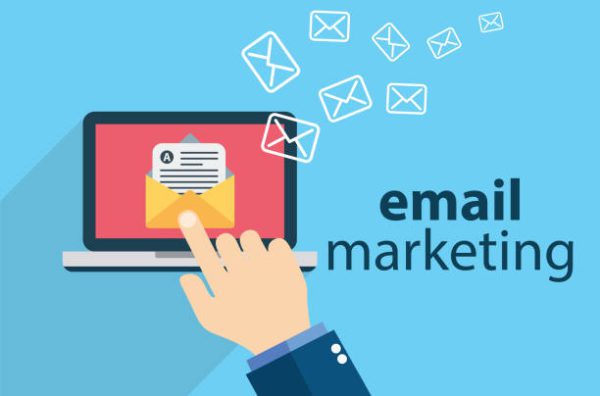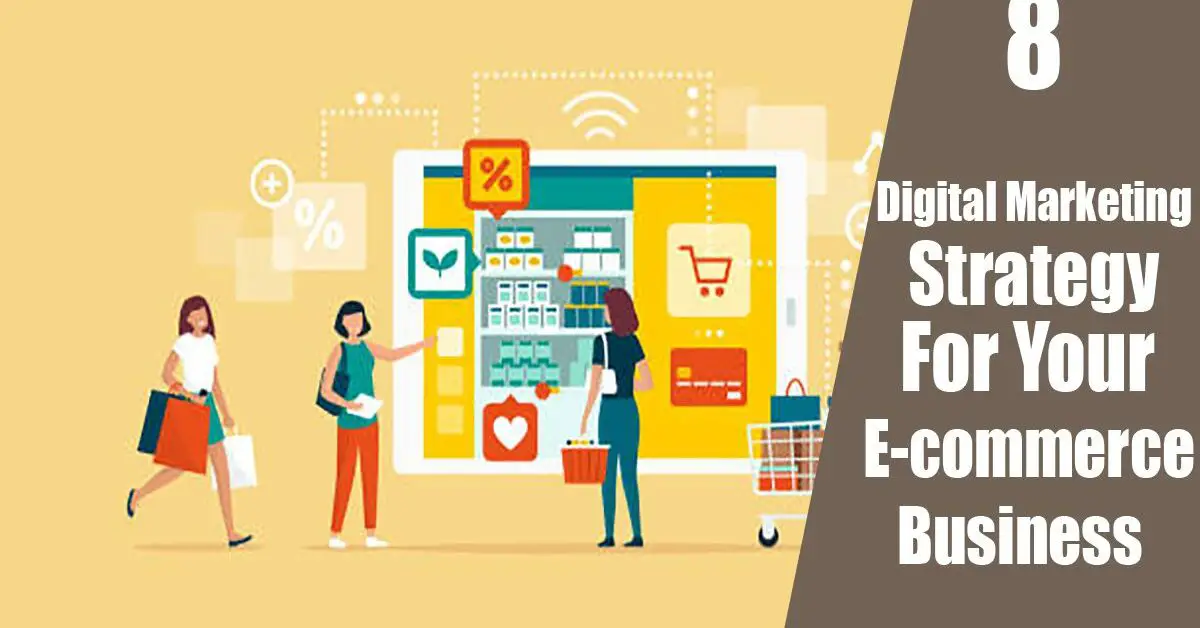The rapid increase in science and technology has accelerated the growth of e-commerce businesses in the world and if you don’t have an effective e-commerce marketing strategy you won’t get your desired result. There are lots of e-commerce businesses in the world and knowing how to differentiate yourself from your competitions is very essential. What can make you different from your competition is not your digital marketing strategy, what will make you different from your competitors and eventually drive traffic, increase brand awareness and ultimately generate revenue is how well you apply some essential marketing strategies to your e-commerce business.
Therefore, your e-commerce marketing strategy should focus on people looking for products and actively using several outbound strategies to get people to want to find you.
In this article, we’ll break down ideas on how you can level up your e-commerce business with the most popular marketing strategies in 2021.
Table of Content
- What is Ecommerce Marketing
- Before You Start Applying Your Marketing Strategies
- 8 E-commerce marketing strategies for your Business
- Search engine optimization.
- Content Marketing Strategies for E-commerce Business
- Email Marketing Strategies for e-commerce business
- Social media Marketing Strategy for your e-commerce business
- Pay per click Marketing srategy for e-commerce business
- User-Generated Content (UGC)
- Affiliate Marketing Strategies for e-Commerce Business
- Influencer marketing strategies for e-commerce business
- Conclusion
What is E-commerce Marketing
E-commerce marketing refers to the process of driving quality traffic to your brand, converting those traffic to sales and making your brand visible to a larger audience. It involves the collaboration of inbound and digital marketing that concentrates on converting visitors into consumers.
An e-commerce strategy does not have to be just one strategy, it can be a combination of two or more. From focusing on organic traffic and SEO to using Facebook or Google ads to drive targeted traffic, you can mix and match paid strategies with non-paid strategies until you figure out which one works best for your business.
A well-developed e-commerce marketing strategy can help you build brand awareness, drive customer loyalty, and ultimately increase online sales. Ecommerce marketers often make use of social media, digital content, search engines, and email campaigns to attract visitors and facilitate purchases online.
Before You Start Applying Your Marketing Strategy
1. Clearly Define Your Business Goals and Objectives.
Before you start implementing any e-commerce marketing strategy, you need to clearly define what you want to achieve with your business. The goal of your business must be clear, realistic and specific.
Your goals can include the following:
- Generating traffic to your website
- Increasing leads and conversion
- Create buzz or awareness about your business
- Generate revenue for your business
- Lifetime customer value.
Defining your business goals and objectives can help you stay on track with your business, measure key performance indicator KPI’s by tweaking to know what is working for your business and what is not and at the same time connecting your brand with your target audience.
2. Identifying Your Target Audience
This is another important point you have to take note of before you start implementing your digital marketing strategies for e-commerce. Clearly defining your target audience can have a tremendous effect on your e-commerce marketing strategy by creating content that will resonate with them.
Having a clear understanding of who you are targeting will allow you to run an efficient campaign with the right audience thereby generating profitable results for your business.
You can define your audience in the following ways
1. Through demographics generated data
This type of data is generated through certain demographics of your website visitors, as well as your email subscribers, and social media followers. These demographics include age, income, interest, location, educational background and so on. Web analytics, social media analytics, and email subscriber analytics are effective tools that can be used in generating demographic data.
2. Create a Buyer persona
Buyer personas or customer avatars are like sketches that describe your ideal customer based on real data.
You can create your customer avatar based on their needs, interest, income, location, educational background occupation, age, etc.
3. Customer feedback
Customer feedback is another way you can reach your target audience by collecting feedback from them about your products and services. Getting reviews and feedback from your customers can give you an insight into how they feel about your brand. It would give you an insight into their most urgent needs and how you can address their problems with your content.
8 E-commerce Marketing Strategies for Your Business
Search engine optimization.

SEO in simple terms stands for search engine optimization. Search engine optimization (SEO) is the process of improving your website to increase its visibility for relevant searches when users search for specific keywords and phrases.
It is also the process of optimizing web pages and their content to get discovered by users searching for terms relevant to your website.
By identifying and targeting keywords and phrases that shoppers use to find your products, you can increase the flow of qualified traffic to your site.
Therefore the better visibility your pages have in search results, the more likely you are going to attract attention and prospective customers to your business.
How to Use SEO E-commerce Marketing Strategies for Your Business
1. Make Use of Keywords
Keywords remain the number one factor for determining SEO for any website. Before you start your e-commerce business you need to research your industry for the right keywords your audience is searching for on Google.
When performing keyword research, it is best to use high volume search terms that match what your users are searching for.
To find the right keywords, you have to study your niche to find out what they are looking for, define your goals, create a list of relevant topics and make use of keywords research tools like Semrush, Google keywords planner, and uber suggest
2. Make Site more Mobile Friendly
With the large number of mobile users worldwide, your web pages must be suited for mobile users. Furthermore, Google has launched the mobile-first index, which means you will rank better if you focus on mobile-friendliness. Google also launched a tool that can help you identify if your website is mobile-friendly.
3. Optimize for Easy Navigation and User Experience
This is very important if you want your e-commerce site to be search engine friendly. If your website is difficult to navigate, most visitors would be forced to leave your site which would lead to a high bounce rate. Make sure your text makes it easy for users to scan through your page content easily. You can organize your web pages into H1 and H2 to facilitate easy reading.
Make sure your speed is fast enough to load web pages especially on mobile devices on your website.
4. Optimize for On-page and Off-page SEO
On-page SEO focuses on how the search engine assesses each page on your site. It deals with how you optimize your website when you are building specific pages on your website.
Factors like headlines, sub-headlines, URL slugs, and meta descriptions fall into this category.
Your meta descriptions should always include primary keywords and they should not be more than 150 characters. Avoid reusing descriptions across products or pages.
Images should be clear and high in quality. They shouldn’t be too large and make sure you include keywords in the file names and alt text.
The body copy should contain all the keywords you are targeting and try to avoid overusing keywords to prevent keyword stuffing. Make sure that your content and page are substantial; pages that are too short tend to get dinged by search engines.
Off-page SEO is another way your website can get search optimized and rank high on the search result page. It refers to how you optimize your website via external means.
Social media activity, guest blogging, influencer marketing, or brand mentions are among the important factors that can improve your site’s off-page SEO.

Content Marketing Strategies for E-commerce Businesses
Creating and sharing valuable content online can also benefit e-commerce businesses in tremendous ways. The search engine is friendly to high-quality content like images, blog posts, infographics and videos.
Content marketing focuses on the creation and distribution of content to attract and retain customers. It draws customers to you, instead of you going to them through direct marketing, display and search advertising.
Your content marketing goal should be to answer your audience’s questions via search engines, social media, and other places they are looking for it.
How to Use Content Marketing for Your E-commerce Business
1.Blog
A blog post typically covers a specific topic or query that share valuable information and expertise with prospective customers. That information demonstrates your knowledge and expertise in your related industry. A blog post helps improves trust, increases brand loyalty, and leads to more purchases.
When writing for e-commerce, you can include a clear path to purchase by including product images and links that go directly to relevant product pages.
2. Videos
Currently, video content represents 82% of internet traffic. Research shows that YouTube is the second most popular site on the web and is second only to Google on the most visited sites on the web.
Another statistic shows that 85% of businesses are using video as a marketing tool.
The advent of smartphones has made it relatively easy and convenient to capture and record awesome promotional videos.
Video content like How-to guides, video tours, and product updates and demonstrations are awesome videos that can help pull traffic to your website and ultimately generate sales.
3. Images and Infographics
Research shows that articles with an image once every 75-100 words tend to get more shares than articles with fewer images.
This means that visual content is much more digestible and engaging than long-form of blogs and articles. With your average smartphone cameras, you can take stunning pictures and quickly edit them with amazing apps.
You can also make use of some free websites like Pixarbay, Unsplash, Freepik. You can also design with apps like Canva, Adobe Photoshop and Illustrator. Infographics are also an awesome way to get your content out there.

Email Marketing Strategies for E-commerce Businesses
Email marketing refers to the use of emails to promote products or services while developing relationships with potential customers or clients. It is one of the most cost-effective and conversion-rich forms of digital marketing today.
Email marketing helps you nurture non-buyers into customers and customers into brand loyalists.
How to Use Email Marketing for Your E-commerce Business
1. Create an email Opt-In Form and start building your email list
The fact remains that you can’t send out email marketing campaigns if you have no one to send them to. The first thing you need to do is to create an opt-in form on your website or e-commerce site where people can fill in their details like name and their email address.
But they won’t fill it unless there is a need to or an incentive. This is where you offer free downloadable content like ebooks, white papers, coupons and other free stuff that you know would benefit your audience. Offering discounts and encouraging people to leave their email at the checkout process can also work.
2. Choose an email marketing platform
Using an email platform is the only way your business can leverage email marketing automation to effectively deliver messages to large groups of contacts or subscribers.
An email marketing platform lets you segment your audience, organize your list, and distribute email campaigns to your audience. It also helps you create landing pages, analyze and track the results to improve future campaigns.
You can make use of e-commerce marketing automation tools like HubSpot, Convertkit and Mailchimp to set up versatile nurturing campaigns that will trigger automatically in certain situations. All you need to do is set up cart abandoned email, welcome email, per topic campaigns upfront and the rest will be handled by the software

Social media Marketing Strategy for your e-commerce business
Social media is a very powerful tool for reaching a large range of people across geographies and age groups. If used effectively, it can boost your content marketing, generate followers, increase brand awareness and generate funds.
Social Media Marketing Strategies for E-commerce
1. Know Your Goals and Audience
It is essential that you clearly define your goals and audience before you start your social media campaign. Identifying your audience and what you want to achieve by using social media will guide the type of content you would create.
2. Choose the Right Channel
When making use of social media for your e-commerce business, the first thing is to know the right channel that is best for your business. Choosing the right channel for your business can help you achieve the best result. For an e-commerce business, you might want to stick with Instagram, Facebook, Pinterest etc.
3. Use of Ads
Every popular social media platform has a useful tool for marketers to serve targeted advertisements to potential customers. Most which operate similarly to Google Ad i.e you create an Ad, set your budget, and pay for every click or number of impressions the ad receives. Social media platforms like Instagram allow swipe-up links on stories and product stickers on posts that, when clicked on, leads viewers directly to a product or catalogue. Facebook on the other hand has a “dynamic ads” feature that allows owners to upload entire catalogues and promote relevant content to individual users.
Make sure your ads reflect your product’s unique selling point and true value with a well-written copy.
4. Retargeting Strategy
Retargeting is when you reach out to people who have seen your ads or engaged with your post or even visited your website and taking some certain action but they didn’t buy or patronize your service. When you reach out to those people you stand a much better chance of making the sale.
5. Pay Per Click Marketing srategy for e-commerce business
PPC advertising is extremely helpful for generating traffic to your e-commerce website while you establish organic rankings. Unless your industry has huge amounts of traffic and almost zero competition which is not possible, you might want to use PPC to drive traffic, increase awareness and generate revenue.
Google Ads allows you to set up ads to display when people search for certain keywords. The advantage is that if people don’t click on your ads, Google won’t charge you. Google ads also let you outrank your competitors on the search engine page which is more effective than organic SEO.
Pay per click (PPC), combines ads, promotions, and landing pages. The ad must contain an enticing offer that leads a person to the specific landing page for further information.
For example, if you create an ad for a shoe you are selling, the ad must explain why people should buy that shoe and the link should lead the person to a landing page that contains useful information that allows them to buy that particular shoe.
Google has different types of ads ranging from shopping ads, remarketing ads, search ads to YouTube ads and display ads. So you can decide which ones best fit your business.
For example, shopping and search ads target people who are actively looking for the products you sell. On the other hand, display ads target people who aren’t necessarily interested in what you offer but are based on user search history.
You can use Creatopy to keep track of every campaign and its assets and create different Ad variations in multiple sizes.
User-Generated Content (UGC)
User-generated content is another digital marketing strategy you can incorporate into your e-commerce business. People are more likely to trust your business and buy from you when they hear and watch testimonies from happy customers. According to Salesforce, 54% of customers are more likely to trust a fellow consumer over your marketing.
How to Use User generated Content
1. Using hashtags on all of your social media platforms
People are more likely to purchase a particular product if they read or watch good reviews about it. Adding reviews to your site can improve your organic search engine result and also attracts more visitors to your website and increase their confidence in purchasing your product. Using hashtags on all your posts makes it easier to find your product and locate your brand.
2. Ask your customers to post reviews on your website
You can encourage your customers to post reviews or testimonials on your website. This can increase your chance of selling your products. If you aren’t currently showing customer reviews on your site, then you should start.
Affiliate Marketing Strategies for e-Commerce Business
Affiliate marketing is the process of connecting e-commerce businesses with products to sell to a marketer who is willing to sell them. Affiliate marketers pick and promote the products they like from a brand catalogue and earn some profit either per sale, per lead or click.
There are several affiliate marketing channels. Influencers and bloggers often review or talk about products on their social media page or youtube channel with affiliate links leading their followers to buy the ones they’re promoting. Other people maintain an email list with affiliate links to products within their preferred niche and targeted at their specific audience.
Influencer marketing strategy for e-commerce business
People trust influencers and will likely buy from them because they see them as authority figures with a lot of experience in their respective industries. Influencers are huge for e-commerce businesses because they bring results and can help you sell your product to a larger audience.
To make influencer marketing work, you need to do your research to find the right influencers who will promote your products. Make sure your influencers are those with large followers and high engagement rates. It doesn’t hurt to build a long-term relationship with influencers and create recurring campaigns with them.
Conclusion
Digital marketing remains one of the best ways you can reach new customers and achieve your business goals. Whether you’re looking to increase sales, revenue and awareness for your e-commerce business, digital marketing is the way.
However, the success of these above strategies depends on how you develop them and strategically execute them.







